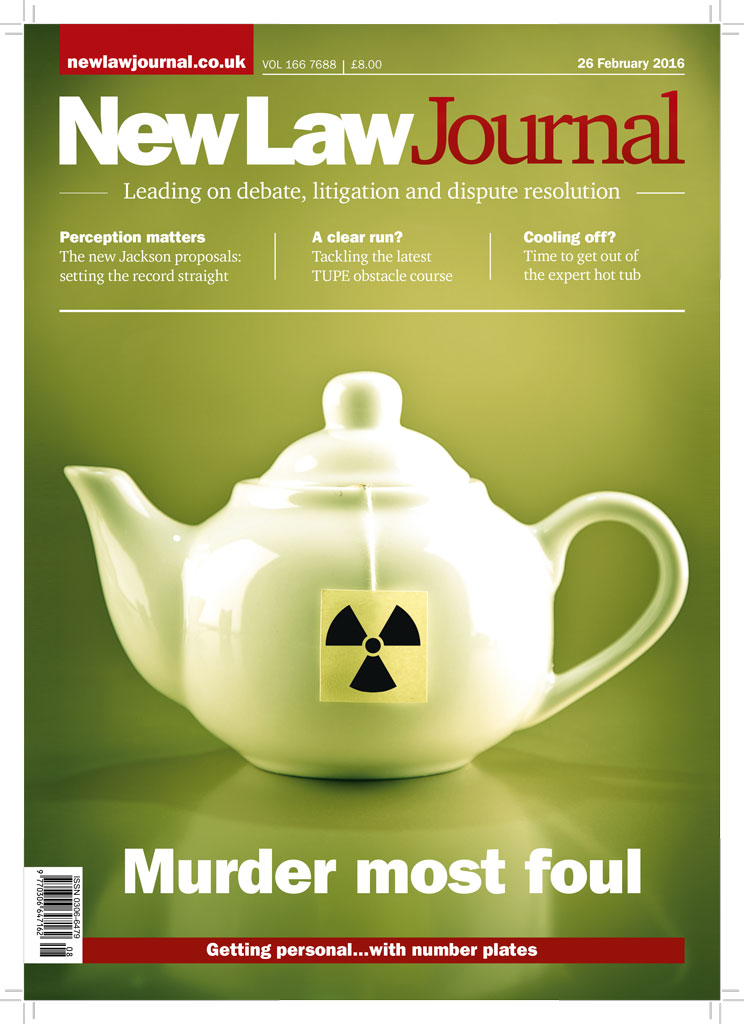
Louis Flannery examines the legal implications of the Litvinenko Report
Jackson: Dominic Regan returns to set the record straight
John McMullen tackles the latest TUPE obstacle course
A cap on liability can lead to some serious sparring with clients, as Chris Nillesen reports
Is the Wednesbury principle consigned to history? Alec Samuels reports
R (on the application of Licensed Taxi Drivers) v Transport for London [2016] EWHC 233 (Admin), [2016] All ER (D) 108 (Feb)
Family Mosaic Home Ownership Ltd v Peer Real Estate Ltd [2016] EWHC 257 (Ch), [2016] All ER (D) 156 (Feb)
MOVERS & SHAKERS

NLJ Career Profile: Ken Fowlie, Stowe Family Law
Ken Fowlie, chairman of Stowe Family Law, reflects on more than 30 years in legal services after ‘falling into law’

Jackson Lees Group—Jannina Barker, Laura Beattie & Catherine McCrindle
Firm promotes senior associate and team leader as wills, trusts and probate team expands

Asserson—Michael Francos-Downs
Manchester real estate finance practice welcomes legal director







